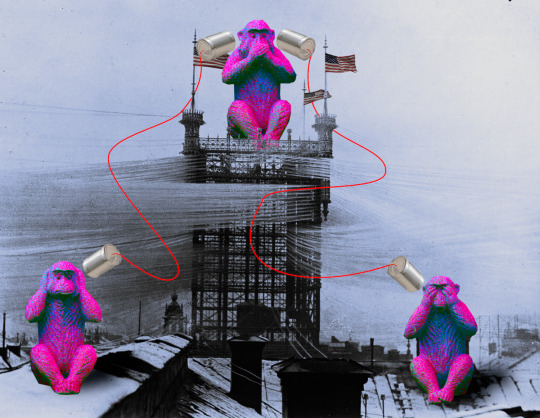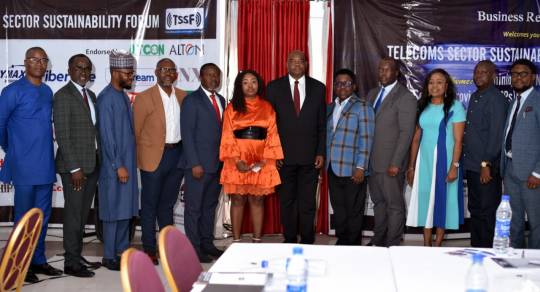#isps
Text
Big Telco’s fury over FCC plan to infuse telecoms policy with facts

I'll be at the Studio City branch of the LA Public Library on Monday, November 13 at 1830hPT to launch my new novel, The Lost Cause. There'll be a reading, a talk, a surprise guest (!!) and a signing, with books on sale. Tell your friends! Come on down!

Reality has a distinct anti-conservative bias, but conservatives have an answer: when the facts don't support your policies, just get different facts. Who needs evidence-based policy when you can have policy-based evidence?
Take gun violence. Conservatives tell us that "an armed society is a polite society," which means that the more guns you have, the less gun violence you'll experience. To prevent reality from unfairly staining this pristine ideological mind-palace with facts, conservatives passed the Dickey Amendment, which had the effect of banning the CDC from gathering stats on American gun-violence. No stats, no violence!
https://en.wikipedia.org/wiki/Dickey_Amendment
Policy-based evidence is at the core of so many cherished conservative beliefs, like the idea that queer people (and not youth pastors) are responsible for the sexual abuse of children, or the idea that minimum wages (and not monopolies) decrease jobs, or the idea that socialized medicine (and not private equity) leads to death panels:
https://pluralistic.net/2023/04/26/death-panels/#what-the-heck-is-going-on-with-CMS
The Biden administration features a sizable cohort of effective regulators, whose job is to gather evidence and then make policy from it:
https://pluralistic.net/2023/10/23/getting-stuff-done/#praxis
Fortunately for conservatives, not every Biden agency is led by competent, honest brokers – the finance wing of the Dems got to foist some of their most ghoulish members upon the American people, including a no-fooling cheerleader for mass foreclosure:
https://pluralistic.net/2023/03/06/personnel-are-policy/#janice-eberly
And these same DINOs reached across the aisle to work with Republicans to keep some of the most competent, principled agency leaders from being seated, like the remarkable Gigi Sohn, targeted by a homophobic smear campaign funded by the telco industry, who feared her presence on the FCC:
https://pluralistic.net/2023/03/19/culture-war-bullshit-stole-your-broadband/
The telcos are old hands at this stuff. Long before the gun control debates, Ma Bell had figured out that a monopoly over Americans' telecoms was a license to print money, and they set to corrupting agencies from the FCC to the DoJ:
https://pluralistic.net/2021/11/14/jam-to-day/
Reality has a vicious anti-telco bias. Think of Net Neutrality, the idea that if you pay an ISP for internet service, they should make a best effort to deliver the data you request, rather than deliberately slowing down your connection in the hopes that you'll seek out data from the company's preferred partners, who've paid a bribe for "premium delivery."
This shouldn't even be up for debate. The idea that your ISP should prioritize its preferred data over your preferred data is as absurd as the idea that a taxi-driver should slow down your rides to any pizzeria except Domino's, which has paid it for "premium service." If your cabbie circled the block twice every time you asked for a ride to Massimo's Pizza, you'd be rightly pissed – and the cab company would be fined.
Back when Ajit Pai was Trump's FCC chairman, he made killing Net Neutrality his top priority. But regulators aren't allowed to act without evidence, so Pai had to seek out as much policy-based evidence as he could. To that end, Pai allowed millions of obviously fake comments to be entered into the docket (comments from dead people, one million comments from @pornhub.com address, comments from sitting Senators who disavowed them, etc). Then Pai actively – and illegally – obstructed the NY Attorney General's investigation into the fraud:
https://pluralistic.net/2021/05/06/boogeration/#pais-lies
The pursuit of policy-based evidence is greatly aided by the absence of real evidence. If you're gonna fill the docket with made-up nonsense, it helps if there's no truthful stuff in there to get in the way. To that end, the FCC has systematically avoided collecting data on American broadband delivery, collecting as little objective data as possible:
https://pluralistic.net/2020/05/26/pandemic-profiteers/#flying-blind
This willful ignorance was a huge boon to the telcos, who demanded billions in fed subsidies for "underserved areas" and then just blew it on anything they felt like – like the $45 billion of public money they wasted on obsolete copper wiring for rural "broadband" expansion under Trump:
https://pluralistic.net/2022/02/27/all-broadband-politics-are-local/
Like other cherished conservative delusions, the unsupportable fantasy that private industry is better at rolling out broadband is hugely consequential. Before the pandemic, this meant that America – the birthplace of the internet – had the slowest, most expensive internet service of any G8 country. During the lockdown, broadband deserts meant that millions of poor and rural Americans were cut off from employment, education, health care and family:
https://pluralistic.net/2021/02/12/ajit-pai/#pai
Pai's response was to commit another $8 billion in public funds to broadband expansion, but without any idea of where the broadband deserts were – just handing more money over to monopoly telcos to spend as they see fit, with zero accountability:
https://pluralistic.net/2020/05/26/pandemic-profiteers/#flying-blind
All that changed after the 2020 election. Pai was removed from office (and immediately blocked me on Twitter) (oh, diddums), and his successor, Biden FCC chair Jessic Rosenworcel, started gathering evidence, soliciting your broadband complaints:
https://pluralistic.net/2021/03/23/parliament-of-landlords/#fcc
And even better, your broadband speed measurements:
https://pluralistic.net/2021/04/14/for-sale-green-indulgences/#fly-my-pretties
All that evidence spurred Congress to act. In 2021, Congress ordered the FCC to investigate and punish discrimination in internet service provision, "based on income level, race, ethnicity, color, religion, or national origin":
https://www.congress.gov/117/plaws/publ58/PLAW-117publ58.pdf
In other words, Congress ordered the FCC to crack down on "digital redlining." That's when historic patterns of underinvestment in majority Black neighborhoods and other underserved communities create broadband deserts, where internet service is slower and more expensive than service literally across the street:
https://pluralistic.net/2021/06/10/flicc/#digital-divide
FCC Chair Rosenworcel has published the agency's plan for fulfilling this obligation. It's pretty straightforward: they're going to collect data on pricing, speed and other key service factors, and punish companies that practice discrimination:
https://www.fcc.gov/document/preventing-digital-discrimination-broadband-internet-access
This has provoked howls of protests from the ISP cartel, their lobbying org, and their Republican pals on the FCC. Writing for Ars Technica, Jon Brodkin rounds up a selection of these objections:
https://arstechnica.com/tech-policy/2023/11/internet-providers-say-the-fcc-should-not-investigate-broadband-prices/
There's GOP FCC Commissioner Brendan Carr, with a Steve Bannon-seque condemnation of "the administrative state [taking] effective control of all Internet services and infrastructure in the US. He's especially pissed that the FCC is going to regulate big landlords who force all their tenants to get slow, expensive from ISPs who offer kickbacks to landlords:
https://www.fcc.gov/document/carr-opposes-bidens-internet-plan
The response from telco lobbyists NCTA is particularly, nakedly absurd: they demand that the FCC exempt price from consideration of whether an ISP is practicing discrimination, calling prices a "non-technical aspect of broadband service":
https://www.fcc.gov/ecfs/document/110897268295/1
I mean, sure – it's easy to prove that an ISP doesn't discriminate against customers if you don't ask how much they charge! "Sure, you live in a historically underserved neighborhood, but technically we'll give you a 100mb fiber connection, provided you give us $20m to install it."
This is a profoundly stupid demand, but that didn't stop the wireless lobbying org CTIA from chiming in with the same talking points, demanding that the FCC drop plans to collect data on "pricing, deposits, discounts, and data caps," evaluation of price is unnecessary in the competitive wireless marketplace":
https://www.fcc.gov/ecfs/document/1107735021925/1
Individual cartel members weighed in as well, with AT&T and Verizon threatening to sue over the rules, joined by yet another lobbying group, USTelecom:
https://www.fcc.gov/ecfs/document/1103655327582/1
The next step in this playbook is whipping up the low-information base by calling this "socialism" and mobilizing some of the worst-served, most-gouged people in America to shoot themselves in the face (again), to own the libs:
https://pluralistic.net/2022/12/15/useful-idiotsuseful-idiots/#unrequited-love

If you'd like an essay-formatted version of this post to read or share, here's a link to it on pluralistic.net, my surveillance-free, ad-free, tracker-free blog:
https://pluralistic.net/2023/11/10/digital-redlining/#stop-confusing-the-issue-with-relevant-facts

Image:
Japanexperterna.se (modified)
https://www.flickr.com/photos/japanexperterna/15251188384/
CC BY-SA 2.0:
https://creativecommons.org/licenses/by-sa/2.0/
--
Mike Mozart (modified)
https://www.flickr.com/photos/jeepersmedia/14325839070/
https://www.flickr.com/photos/jeepersmedia/14325905568/
https://www.flickr.com/photos/jeepersmedia/14489390566/
www.ccPixs.com
https://www.flickr.com/photos/86530412@N02/8210762750/
CC BY 2.0
https://creativecommons.org/licenses/by/2.0/
#pluralistic#reality-based community#willful ignorance#digital redlining#telecoms#isps#cable company fuckery#net neutrality#network neutrality#fcc#monopolies#market failures#musketfuckers#ammosexuals#guns#race#reality has an anti-conservative bias#dickey amendment#policy based evidence#facts don't care about your feelings
137 notes
·
View notes
Link
Call them junk fees, nuisance fees, or sludge, they amount to add-ons to the stated price of something.
Unregulated businesses which have national or local monopolies or who deal in uncompetitive services can mostly charge you whatever they want. Sometimes exorbitant prices are camouflaged by fees billed as add-ons but are usually necessary for the transaction.
In his State of the Union address, President Biden said he would try to crack down on these junk fees.
Hertz charges almost $6 a day simply for using a toll transponder in a rental car. Marriott and Hilton add nightly “resort fees” to the bill even at hotels that nobody would consider to be resorts. American, Delta and United list one airfare when you first search for a seat — and then add charges for basic features like the ability to sit next to your spouse.
Ticketmaster is especially aggressive about imposing fees, as I experienced recently while buying two tickets to a football game. When I initially selected my seats on Ticketmaster’s online stadium map, they cost $48. The bill at checkout was more than one-third higher — $64.40.
President Biden has announced a crackdown on these fees (which his administration calls “junk fees”), and he devoted a section of his State of the Union address to them. “Look, junk fees may not matter to the very wealthy, but they matter to most other folks in homes like the one I grew up in,” he said Tuesday night. “I know how unfair it feels when a company overcharges you and gets away with it.”
Very often consumers don’t pay much attention to the small print written in extended and impenetrable gobbledygook which has become a routine part of many transactions. Did you read the entire text of the terms the last time you purchased or updated software and clicked AGREE?
We lead busy lives that keep us from analyzing every purchase, and we get distracted by salient but misleading information (like a low list price). Big companies, with the resources at their disposal, have learned to take advantage of these limitations. The economist Richard Thaler refers to practices like these as “sludge,” the evil counterpart to nudges that use behavioral economics to improve life.
True, one company could call out another for using sludge. But doing so often requires a complex marketing message that tries to persuade people to overcome their psychological instincts (like the appeal of a low list price). For that reason, Hilton can probably make more money by charging its own sneaky resort fees than by criticizing Marriott’s.
Yep. When competitors don’t call each other out, it may be to hide their own dodgy practices. In such circumstances they are acting more like a cartel than like competing businesses.
One step beyond a cartel is a classic monopoly.
In some markets, consumers don’t have much choice. Ticketmaster’s fees outrage many people. But I didn’t have any choice when I bought those football tickets. There was no rival service selling them.
In recent decades, many American industries have become more concentrated, partly because Washington became more lax about enforcing antitrust laws. Thomas Philippon, an N.Y.U. economist, has estimated that increased corporate concentration costs the typical American household more than $5,000 a year.
There was an orgy of deregulation during the Reagan years with an encore during the first George W. Bush administration. The stated aim of these rounds of deregulation was to get government off the backs of American businesses. What really happened is that they put certain businesses on the backs of American consumers.
Making it difficult to cancel a service is another aspect of this culture of sludge.
The small number of dominant internet providers, for instance, reduces the chances that a new entrant can design a business strategy around undercutting Comcast’s and Verizon’s sneaky fees. Those new entrants don’t exist. Comcast and Verizon have also figured out how to make the cancellation of internet service unpleasant and time-consuming. Airlines — another concentrated industry — use frequent-flier programs in a similar way, effectively punishing customers for switching to a different carrier.
So the Biden administration is trying to alleviate or even put a stop to many of these fees.
The Biden administration is trying to address both causes of sneaky fees. On antitrust, it has adopted a policy more confrontational than that of any other administration in decades. That effort is in its early stages, without many big victories. Still, the administration does seem to be taking corporate concentration seriously.
As for the sludge itself, the administration has already taken steps to restrict a few examples, such as charges for late payments on credit cards. Biden has asked Congress to pass a law with stricter rules for other industries.
The administration’s bigger focus for now is on disclosure — requiring companies to tell consumers up front what the full cost will be. The Transportation Department has proposed such a rule for airlines.
If you’ve been impacted recently by such business practices, this might be a good time to contact the folks who represent you on Capitol Hill and let them know that you demand change. To get rid of some of these dubious fees it may be necessary for Congress to pass legislation.
BONUS TRACK: Over a year ago an SNL sketch featuring Kieran Culkin brilliantly depicted how difficult it is to deal with corporations who wish to retain a stranglehold on your money.
youtube
Kieran should return and do a follow-up on dealing with banks.
#sludge#junk fees#nuisance fees#monopolies#cartels#lack of competition#deregulation#cable companies#isps#ticketmaster#banks#airlines#hotel chains#cracking down on junk fees#richard thaler#thomas philippon#antitrust laws#biden administration#joe biden#kieran culkin
20 notes
·
View notes
Text
business internet
Until recently, the only options we had for internet at the shop were two large ISPs, both of which charge A LOT just for internet.
Now that mobile companies are competing, I’ve switched.
Because HOLY SHIT LARGE ISPS ARE RIDICULOUS
$400/month for INTERNET. Seriously!
I’m now going to be paying $50/month at the shop. A savings of $4200/year just for internet.
Business internet has always been seen as this huge ordeal that requires a lot of spending, but it’s just internet! The amount of people using it in the shop at any given time is about the same as the average family.
ISPs like to act like it’s a big deal and ooh we service you within 4 hours if something happens but like no that’s not worth $4200 a year. Gimme the cheap fast internet.
Especially when Cox goes down every morning just before we open and every night -- both of those were times when I get on from home through the remote desktop and work on shop computers & inventory.
Business internet for $50 a month!!! 🥳🎈🎉
3 notes
·
View notes
Text
ISPs are violating the spirit of the FCC Broadband Facts mandate
Shopping for home internet service just got easier, thanks to an overdue act of government regulation—at least in theory.
As of April 10, major internet service providers (ISPs) in the U.S. must provide “Broadband Facts” labels to prospective customers, under FCC rules approved in late 2022. Modeled after the “Nutrition Facts” labels the FDA mandates for packaged food, these broadband labels must…

View On WordPress
0 notes
Text
The Advantages of Outsourcing Field Technicians and Installers for WISPs and ISPs

Introduction
In the rapidly evolving world of telecommunications, Wireless Internet Service Providers (WISPs) and Internet Service Providers (ISPs) face the constant challenge of meeting the growing demand for high-speed, reliable internet connectivity. To stay ahead in this competitive landscape, many companies are turning to outsourcing for their field technician and installer needs. In this blog post, we will explore in detail the advantages of outsourcing, discuss best practices, and address the challenges associated with this strategic decision.
Advantages of Outsourcing for WISPs and ISPs:
1. Cost Efficiency:
Outsourcing field technicians and installers can significantly reduce operational costs. The expenses associated with hiring, training, and maintaining an in-house team are substantial. By opting for outsourcing, WISPs and ISPs can streamline their budget, allocating resources more efficiently. This newfound cost-effectiveness allows companies to invest in core business activities, such as technology upgrades and infrastructure expansion, propelling them forward in the competitive telecom industry.
2. Access to Specialized Skills:
The telecommunications industry is marked by rapid technological advancements. Outsourcing enables WISPs and ISPs to tap into a pool of specialized skills and knowledge without the need for continuous in-house training. External technicians often bring valuable experience, ensuring that installations and maintenance are carried out with the latest industry standards and best practices. This infusion of expertise enhances the overall competence of the company in delivering cutting-edge services to customers.
3. Flexibility and Scalability:
Outsourcing provides a level of flexibility crucial in the dynamic telecom sector. WISPs and ISPs can scale their operations up or down based on demand without the constraints of a fixed workforce. This flexibility allows companies to adapt quickly to changing market conditions and maintain a competitive edge. Whether facing rapid growth or a temporary decline in demand, the ability to scale resources accordingly positions telecom companies for long-term success.
4. Focus on Core Competencies:
By outsourcing non-core functions, WISPs and ISPs can concentrate on their core competencies. This strategic focus is essential for staying ahead in the competitive telecom landscape and fostering long-term growth. Whether it’s network optimization, service innovation, or enhancing customer satisfaction, companies that can concentrate on what they do best are better positioned to outshine competitors in the fast-paced world of telecommunications.
Best Practices for Outsourcing Field Technicians and Installers:
1. Clearly Defined Scope of Work:
Establishing a comprehensive scope of work is crucial. This document should outline the specific tasks and responsibilities of the outsourced technicians, leaving no room for ambiguity. Clear communication ensures that both parties are aligned on expectations, reducing the likelihood of misunderstandings or conflicts and fostering a collaborative working relationship.
2. Quality Assurance Measures:
Implementing rigorous quality assurance measures is essential to ensure that outsourced technicians adhere to industry standards and deliver high-quality services consistently. Regular audits, performance evaluations, and feedback mechanisms are indispensable for maintaining a consistently high level of service. By setting and continuously monitoring quality benchmarks, telecom companies can ensure customer satisfaction and build a reputation for reliability.
3. Effective Communication Channels:
Establishing open and effective communication channels between the in-house team and outsourced technicians is vital. A collaborative approach fosters better coordination, problem-solving, and knowledge sharing. Regular meetings, updates, and feedback sessions help maintain a strong connection between internal and external teams, ensuring everyone is on the same page and working towards common goals.
Challenges of Outsourcing:
1. Risk of Service Quality Variability:
One of the main challenges is the potential variability in service quality among different outsourced technicians. To mitigate this risk, companies should prioritize thorough vetting processes during the selection phase. Ongoing quality assurance initiatives, including regular performance reviews and training programs, can help standardize service delivery and ensure consistency across the board.
2. Data Security Concerns:
Telecom companies handle sensitive customer data, making data security a top concern. When outsourcing, it’s crucial to establish robust data protection protocols. Ensuring that the outsourced technicians comply with industry regulations and have a deep understanding of data security best practices is paramount. Regular audits and assessments of data handling practices help maintain the integrity and security of customer information.
Conclusion
Outsourcing field technicians and installers offers numerous advantages for WISPs and ISPs, from cost savings to access to specialized skills and increased flexibility. By implementing best practices and addressing potential challenges, telecom companies can harness the benefits of outsourcing to stay agile, focus on core competencies, and deliver superior services in an ever-evolving market. Strategic outsourcing, when approached with careful planning and diligence, can be a game-changer in the quest for operational excellence and sustainable growth in the telecommunications industry.
#telecomindustry#OutsourcingAdvantages#fieldtechnicians#isps#DataSecurityChallenges#rural broadband#connectivitysolutions#highspeedinternet
0 notes
Text






Fiber Optic Splice Tray ABS material
12 SC simplex; 12 fibers; with aluminum blue cover
12 SC simplex; 24 fibers; with plastic gray white cover
16 SC simplex; 16 fibers; with plastic gray white cover
#fiberoptic#ftth#opticalfiber#fiberopticsplicetray#manufacturer
#factory#MadeinChina#YHT
1 note
·
View note
Text



📰December NEWS of YHT company❣️‼️
🇨🇳On December 9, our second factory building in Guangxi officially opened. The entire building has three floors, with a single floor area of over 1,500 square meters.
The injection molding workshop on the first floor has as many as 32 injection molding machines and 12 production lines, accounting for 70% of the Huizhou factory's production capacity. Currently we have 80 injection molding machines.
❣️Follow me and I will continue to update in the future.
#fiberoptics #telecommunication #ISPs #Manufactuer #China #YHTfactory #2024 #FTTX #Fiberopticcable #Fiberopticspliceclosure #FusionSplicer #Fastconnector #Domeclosure
#fiber optics#fiberoptics#telecommunication#ISPs#Manufactuer#China#YHTfactory#2024#FTTX#Fiberopticcable#Fiberopticspliceclosure#FusionSplicer#Fastconnector#Domeclosure
0 notes
Text
Big ups to my local monopolized ISP for finally bringing the downstream power above -18 fucking DBmV. Only took you guys a month I'm so proud. Never mind the fact his had been apparently been going on in my apartment complex for months, was entirely on your side of the damn wall; and nobody had even bothered to look into it until I had to because the damn upstream kept dropping out, and I'm a developmentally disabled nerd who is likely the only one in this entire goddamned neighborhood who could interpret a DOCSIS log -- but at least it's within spec now.
#isps im killing you killing you killing you killing you#my thoughts#computers#isps#frog blast the vent post core
0 notes
Text
Weekly output: drone delivery, ISP satisfaction, surprise military flyovers, data breach report, Google News Showcase coming to U.S.
This week will be taking me to a higher altitude–the outskirts of Denver, where I’ll be moderating a panel and writing up other panels at Fierce Video’s StreamTV Show from Monday through Thursday. This is the 2023 version of the conference I was supposed to speak at in 2022 until I tested positive for Covid the night before my flight out; I had told the organizers at the time that I would set…

View On WordPress
#ACSI#Arlington National Cemetery#data breaches#Dronamics#drone delivery#fiber broadband#flyover#Google News Showcase#Internet providers#ISPs#journalism business models#military flyover#Verizon DBIR
0 notes
Text
Mesh it Up Monday: BGP - The Glue That Holds the Internet Together
🌐💪🔗
Ever wondered how the internet stays connected across the globe? It’s all thanks to a magical protocol called BGP, or Border Gateway Protocol. BGP is like the glue that holds the internet together, ensuring that data flows smoothly between different networks and making the world feel like a smaller, more connected place. In this Mesh it Up Monday post, we’ll demystify BGP, explain how it…

View On WordPress
#BGP#Border Gateway Protocol#Data Transfer#internet black holes#internet connectivity#internet infrastructure#ISPs#network performance#network routing
0 notes
Text
Ars Technica: ISP admits lying to FCC about size of network to block funding to rivals
Ryan Grewell, who runs a small wireless Internet service provider in Ohio, last month received an email that confirmed some of his worst suspicions about cable companies.
Grewell, founder and general manager of Smart Way Communications, had heard from some of his customers that the Federal Communications Commission's new broadband map falsely claimed fiber Internet service was available at their homes from another company called Jefferson County Cable. Those customer reports spurred Grewell to submit a number of challenges to the FCC in an attempt to correct errors in Smart Way's service area.
One of Grewell's challenges elicited a response from Jefferson County Cable executive Bob Loveridge, who apparently thought Grewell was a resident at the challenged address rather than a competitor.
"You challenged that we do not have service at your residence and indeed we don't today," Loveridge wrote in a January 9 email that Grewell shared with Ars. "With our huge investment in upgrading our service to provide xgpon we reported to the BDC [Broadband Data Collection] that we have service at your residence so that they would not allocate addition [sic] broadband expansion money over [the] top of our private investment in our plant."
The email is reminiscent of our November 2022 article about a cable company accidentally telling a rival about its plan to block government grants to competitors.
Speaking to Ars in a phone interview, Grewell said, "This cable company happened to just say the quiet part out loud." He called it "a blatant attempt at blocking anyone else from getting funding in an area they intend to serve."
It's not clear when Jefferson County Cable plans to serve the area. Program rules do not allow ISPs to claim future coverage in their map submissions.
Jefferson County Cable ultimately admitted to the FCC that it filed incorrect data and was required to submit a correction. The challenge that the ISP conceded was for an address on State Route 43 in Bergholz, Ohio. The town is not one of the coverage areas listed on Jefferson County Cable's website.
While checking the FCC broadband map today, we confirmed that the address is no longer listed as having Jefferson County Cable service. But that one fix alone wouldn't prevent the company's grant-blocking strategy from working, because the FCC map still lists the company as serving the address right next door and others on the same road.
False data hurts ISPs seeking grants
False broadband data could hurt Smart Way directly because the ISP plans to apply for grants to upgrade its network. There have been over a million challenges submitted to the FCC nationwide, and it's unknown how many mistakes are on the map overall.
The new FCC map is supposed to show exactly which homes and businesses have access to Internet service and what types of service are available at each address. Using that data, the US government and states will decide how to allocate federal funding to projects that fill in broadband-availability gaps.
But the maps rely on Internet service providers to report where they offer service and are rife with errors that show ISPs claiming to serve more homes than they actually do. Nevada officials said they found more than 20,000 mistakes in their state alone. Vermont officials said the map is "missing or incorrectly lists the location of over 60,000 broadband-serviceable locations" and "lists service availability levels far beyond what the state has found through its mapping and what we are hearing about from residents."
If you'd like to submit challenges, you can search for reported broadband availability at specific addresses here and use that page to file challenges. In addition to the individual submissions, state governments and broadband-focused groups have been submitting bulk challenges.
Grewell said he submitted about a dozen challenges in late November, most of which pertained to addresses purportedly served by Jefferson County Cable. He said he filed the "challenges in areas that I knew there was no fiber-to-the-home whatsoever."
We haven't received a response to requests for comment from Loveridge or Jefferson County Cable. But Jefferson County Cable withdrew its coverage claim at the one address referenced in Loveridge's email after Grewell's challenge.
"The provider subject to your challenge has conceded the challenge and is required to submit a correction for the challenged location in the online portal within 30 days," the FCC told Grewell in an email notification on January 12.
Despite that one success, Grewell told us yesterday that he hasn't received responses for any of the other addresses he challenged. The successful challenge at one address also didn't trigger map updates to nearby homes, as previously mentioned.
#lies#isps#internet#fiber optics#cable speeds#ISP admits lying to FCC about size of network to block funding to rivals#broadband#broadband speeds#network speeds#fcc
0 notes
Text

trying to remember how to draw again 🐠
#my art#geminitay#sketch#mcyt#hermitcraft#mcytblr#art#hermitblr#mcyt fanart#geminitay fanart#hermitcraft s10#hc s10#hermitcraft fanart#i've never drawn a fish in my life can you tell#my mom switched us to an ISP that works really well in the rurals but we dont live in the rurals so the speed is hilariously poor.#I'm reliving 2011 against my will. it took 3 hours to download all 20 of the stardew mods i use. i watch youtube videos in 140p.#it takes 5 minutes to send an email. like. from pressing send to the mail being sent.#autosaving this post failed!!! i didnt know that was something that could happen#customer support has been unhelpful. this whole thing feels like an elaborate april fools joke. im not upset btw it IS funny
658 notes
·
View notes
Text
When Hardware Fails, Life Pauses
When Hardware Fails, Life Pauses
Susan’s 27-inch iMac died. Our Synology network-attached storage (NAS) server died. The Tameri hosting service experienced a major “glitch” that blocked FTP access. Susan’s iPhone stopped syncing with iCloud. The podcasting service I was using unceremoniously stopped working.
Technology fails, and our daily lives get put on pause.
Sunday, we drove over to the Apple store and bought a new Mac…

View On WordPress
0 notes
Text
NCC reiterates its commitment to creating enabling environment for ISPs
NCC reiterates its commitment to creating enabling environment for ISPs
Commends TSSF
The Nigerian Communications Commission, NCC, has commended the Telecoms Sector Sustainability Forum, TSSF, initiative organised by Business Remarks for creating an opportunity for industry stakeholders and the advancement of telecommunications development in Nigeria.
Themed “Examining the Nigerian Internet Service Providers Viability in a Digitized Environment”, NCC expressed…

View On WordPress
0 notes
Video
day 2 #stcw #firefighting #jaheziya #uae #dxb #dubai #fyp #foryou #foryoupage #fypシ #fy #funny #foryourpage #fypage #fun #imo #isps #marineconcept #iyt https://www.instagram.com/p/Cex7zXAJM1H/?igshid=NGJjMDIxMWI=
#stcw#firefighting#jaheziya#uae#dxb#dubai#fyp#foryou#foryoupage#fypシ#fy#funny#foryourpage#fypage#fun#imo#isps#marineconcept#iyt
0 notes
Text
Bridging the Connectivity Gap: How Fixed Wireless Augments Fiber for WISPs and ISPs

In today’s digital era, reliable internet connectivity is no longer a luxury but a necessity. However, there are still many areas where traditional wired infrastructure, such as fiber-optic cables, may not be feasible due to geographical constraints or cost limitations. This is where fixed wireless technology comes to the rescue, empowering Wireless Internet Service Providers (WISPs) and Internet Service Providers (ISPs) to bridge the connectivity gap and provide high-speed internet access in underserved regions. In this blog post, we’ll explore how fixed wireless is being used to augment fiber for WISPs and ISPs, enabling efficient and cost-effective network deployments.
Understanding Fixed Wireless Technology
Fixed wireless technology utilizes radio signals to establish a wireless connection between a transmission point (typically a tower or a base station) and a receiving antenna installed on a customer’s premises. Unlike mobile wireless networks, which serve devices in motion, fixed wireless is designed for stationary connections over longer distances.
Augmenting Fiber with Fixed Wireless
*Extending Coverage to Rural and Remote Areas
Fiber-optic cables are often limited to urban or densely populated areas due to the significant infrastructure investments required. However, rural and remote regions, which suffer from a lack of reliable connectivity, can benefit greatly from fixed wireless deployments. WISPs and ISPs can leverage fixed wireless technology to establish point-to-point or point-to-multipoint connections, enabling them to extend their network coverage beyond the reach of fiber-optic infrastructure. This approach ensures that even customers in remote locations can access high-speed internet services.
*Rapid Deployment and Cost Efficiency
Installing fiber-optic cables involves significant time, resources, and infrastructural modifications, making it impractical in certain areas. Fixed wireless, on the other hand, offers a more agile and cost-effective solution. By leveraging existing towers or infrastructure, WISPs and ISPs can quickly deploy fixed wireless networks, bypassing the need for extensive construction or rights-of-way negotiations. This enables them to serve customers in a shorter timeframe and at a fraction of the cost compared to fiber deployments.
*Last-Mile Connectivity
In many cases, the challenge lies in providing the “last mile” connectivity, which refers to the final leg of the network that connects individual premises to the ISP’s infrastructure. Fiber-optic cables may terminate at a local point of presence (POP), but delivering the service to individual homes or businesses may require additional infrastructure and costs. Fixed wireless acts as a viable solution to address this challenge, offering a wireless connection directly from the nearest tower to the customer’s premises. By utilizing fixed wireless technology for the last mile, WISPs and ISPs can overcome geographical obstacles and deliver high-speed internet services directly to end-users.
*Redundancy and Network Resilience
Fiber-optic networks are known for their reliability and high bandwidth capacity. However, they are not impervious to physical damages caused by natural disasters, construction accidents, or equipment failures. By integrating fixed wireless as a redundant connectivity option, WISPs and ISPs can ensure network resilience. In the event of fiber outages, fixed wireless connections can seamlessly take over, minimizing service disruptions and maintaining internet access for customers.
Conclusion
Fixed wireless technology is revolutionizing the way WISPs and ISPs provide internet connectivity, particularly in areas where traditional wired infrastructure falls short. By augmenting fiber-optic networks with fixed wireless solutions, these service providers can extend coverage to underserved regions, rapidly deploy networks, overcome last-mile challenges, and enhance network redundancy. As technology continues to advance, fixed wireless will play an increasingly vital role in bridging the connectivity gap and bringing reliable high-speed internet access to communities around the world.
Checkout more topics — https://isprevolution.io/blog/
#Connectivity Gap#FixedWireless#fiber optics#WISPs#isps#Internet Infrastructure#BroadbandAccess#wireless technology
1 note
·
View note